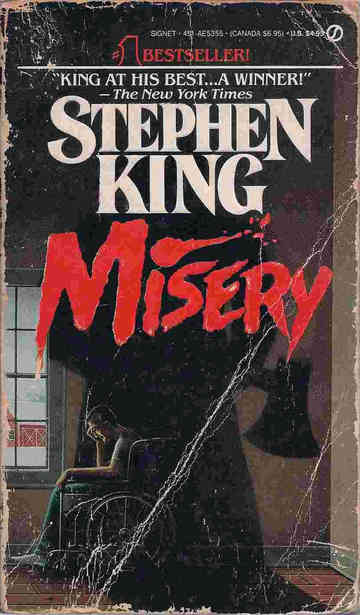Stephen King’s Quotes: Insights Into The Craft Of Writing
If you’ve ever delved into the world of writing, chances are you’ve heard of the legendary Stephen King. Known for his captivating storytelling and chilling horror novels, Stephen King has become an icon in the literary world. But did you know that he also has a wealth of knowledge to share about the craft of writing? In this article, we’ll explore some of Stephen King’s most insightful quotes that offer valuable insights into the art of writing.
When it comes to writing, Stephen King is a master at capturing the essence of a story and bringing it to life on the page. His unique perspective and approach to the craft have inspired countless aspiring writers around the globe. From his thoughts on the importance of reading to his advice on finding your own voice, Stephen King’s quotes provide invaluable guidance for anyone looking to hone their writing skills. So, whether you’re a seasoned writer or just starting out on your creative journey, get ready to be inspired by Stephen King’s profound insights into the craft of writing.

Stephen King’s Quotes: Insights into the Craft of Writing
Stephen King is a master of storytelling, captivating readers with his gripping plots and memorable characters. But his talents go beyond just crafting compelling narratives. Throughout his career, King has shared invaluable insights into the craft of writing, offering advice and inspiration to aspiring authors. In this article, we will explore some of Stephen King’s most insightful quotes on writing, delving into the wisdom and expertise of one of the greatest authors of our time.
1. The Importance of Reading
Stephen King emphasizes the significance of reading for aspiring writers. He believes that reading widely and voraciously is essential for honing one’s writing skills. According to King, “If you don’t have time to read, you don’t have the time (or the tools) to write.”
Reading exposes writers to different writing styles, genres, and perspectives, helping them develop their own unique voice. It also expands their vocabulary and improves their understanding of narrative structure. By immersing oneself in the works of other authors, writers gain valuable insights and inspiration that can enhance their own storytelling abilities.
Benefits of Reading:
• Enhances vocabulary and language skills
• Provides exposure to different writing styles and genres
• Expands knowledge and understanding of storytelling techniques
• Inspires creativity and imagination
• Develops critical thinking and analytical skills
2. Writing Every Day
One of the key pieces of advice Stephen King imparts to writers is the importance of consistency. He advocates for a daily writing practice, stressing that regularity is crucial for improvement. King advises, “Write every single day, without fail, no matter what.”
By committing to a daily writing routine, writers develop discipline and strengthen their writing muscles. It allows them to explore ideas, experiment with different writing techniques, and refine their storytelling abilities. Consistent writing also helps writers overcome writer’s block and fosters a deeper connection with their craft.
Tips for Establishing a Daily Writing Habit:
• Set aside a dedicated time and space for writing
• Start with smaller writing goals and gradually increase them
• Find motivation and inspiration through reading, research, or personal experiences
• Use writing prompts or exercises to stimulate creativity
• Embrace the process and allow yourself to make mistakes
3. Show, Don’t Tell
Stephen King often emphasizes the importance of showing rather than telling in writing. He advises writers to create vivid and sensory-rich descriptions that allow readers to experience the story firsthand. According to King, “Description begins in the writer’s imagination but should finish in the reader’s.”
By using descriptive language and engaging the reader’s senses, writers can create a more immersive and engaging reading experience. Instead of simply stating facts or emotions, they can paint a picture with words, evoking powerful imagery and eliciting an emotional response from readers.
Benefits of Showing, Not Telling:
• Creates a more immersive reading experience
• Engages the reader’s senses and emotions
• Allows readers to draw their own conclusions
• Adds depth and complexity to characters and settings
• Enhances the overall storytelling impact
4. Embrace Rejection and Persevere
Stephen King’s own journey to success was not without its challenges. He faced multiple rejections before finding a publisher for his first novel, “Carrie.” King encourages aspiring writers to embrace rejection as a natural part of the writing process and to persevere despite setbacks.
According to King, “By the time I was 14… the nail in my wall would no longer support the weight of the rejection slips impaled upon it. I replaced the nail with a spike and went on writing.”
King’s resilience and determination serve as a testament to the importance of persistence in the face of obstacles. Rejections can provide valuable feedback and opportunities for growth. By learning from criticism and continuing to hone their craft, writers increase their chances of success.
Tips for Dealing with Rejection:
• View rejection as an opportunity for growth
• Seek feedback and constructive criticism
• Revise and improve your work based on feedback
• Surround yourself with a supportive writing community
• Stay committed to your writing goals and believe in your abilities
Stephen King’s quotes offer invaluable insights into the craft of writing. From the importance of reading and establishing a daily writing practice to the significance of showing rather than telling, his advice serves as a guiding light for aspiring authors. By incorporating King’s wisdom into their own writing journeys, writers can enhance their skills, overcome challenges, and unleash their full creative potential.
Key Takeaways: Stephen King’s Quotes – Insights into the Craft of Writing
- Good writing requires reading a lot and writing a lot.
- Writing is a form of telepathy, where the writer’s thoughts are transferred to the reader’s mind.
- Don’t worry about what others think, write for yourself first.
- Editing is essential to improve your writing; cut out unnecessary words and tighten your prose.
- Writing is a journey, enjoy the process and trust your instincts.
Frequently Asked Questions
1. What are some of Stephen King’s most insightful quotes about writing?
Stephen King, a renowned author known for his mastery of the craft, has shared many insightful quotes about writing throughout his career. One of his famous quotes is, “The scariest moment is always just before you start.” This quote highlights the fear and uncertainty writers often face before beginning a new project.
Another insightful quote from King is, “The road to hell is paved with adverbs.” This quote emphasizes the importance of using strong, precise language in writing and avoiding excessive use of adverbs. King believes that over-reliance on adverbs can weaken the impact of writing.
2. How can Stephen King’s quotes inspire and motivate aspiring writers?
Stephen King’s quotes can serve as a great source of inspiration and motivation for aspiring writers. One of his quotes that resonates with many is, “If you want to be a writer, you must do two things above all others: read a lot and write a lot.” This quote emphasizes the importance of reading and writing consistently to improve one’s craft.
Additionally, King’s quote, “Writing is magic, as much the water of life as any other creative art. The water is free. So drink,” reminds aspiring writers to embrace the joy and freedom of writing. It encourages them to tap into their creativity and express themselves without inhibition.
3. What can writers learn from Stephen King’s advice on the craft of writing?
Stephen King’s advice on the craft of writing offers valuable lessons for writers. One of his notable quotes is, “Write with the door closed, rewrite with the door open.” This advice emphasizes the importance of first allowing oneself to write freely without external judgment or distractions, and then revising and refining the work with the input of others.
Another important lesson from King’s quotes is the significance of perseverance. He once said, “Talent is cheaper than table salt. What separates the talented individual from the successful one is a lot of hard work.” This serves as a reminder that talent alone is not enough; writers must be willing to put in the effort and dedication required to succeed.
4. How can Stephen King’s quotes help improve the writing process?
Stephen King’s quotes can provide valuable insights to improve the writing process. One of his quotes that highlights this is, “The scariest moment is always just before you start.” This quote reminds writers that overcoming the fear and resistance to starting is often the biggest hurdle. By acknowledging this fear, writers can push through and begin their writing with confidence.
Another quote by King that can enhance the writing process is, “The first draft is just you telling yourself the story.” This quote encourages writers to embrace the rough and imperfect nature of the first draft, understanding that it is a necessary step in creating a compelling and polished final piece.
5. How can Stephen King’s quotes help writers find their unique voice?
Stephen King’s quotes can guide writers in finding their unique voice. One of his memorable quotes on this topic is, “Your job isn’t to find these ideas but to recognize them when they show up.” This quote encourages writers to trust their instincts and be open to inspiration, as unique ideas often present themselves unexpectedly.
Additionally, King’s advice to “write what you like, then imbue it with life and make it unique by blending in your own personal knowledge of life, friendship, relationships, sex, and work” emphasizes the importance of infusing one’s own experiences and perspectives into their writing. This can ultimately help writers develop a distinct and authentic voice.
Stephen King on the Craft of Short Story Writing
Final Thoughts: Stephen King’s Quotes Unveiling the Art of Writing
As we delve into the world of Stephen King’s quotes, we discover a treasure trove of insights into the craft of writing. Through his words, King not only provides guidance and inspiration to aspiring writers but also offers a glimpse into his own writing process. From the importance of reading to the power of perseverance, King’s quotes serve as both a guiding light and a reminder that writing is a journey worth embarking on.
One of the key takeaways from King’s quotes is the emphasis on the role of reading in becoming a better writer. He highlights the significance of immersing oneself in literature, recognizing that reading widens our horizons and allows us to absorb different writing styles and techniques. King’s quote, “If you don’t have time to read, you don’t have the time (or the tools) to write,” serves as a poignant reminder that reading is the foundation upon which great writing is built.
Another invaluable lesson we learn from King’s quotes is the importance of perseverance and dedication. King himself acknowledges the challenges that writers face, mentioning, “The scariest moment is always just before you start.” This quote resonates with writers who understand the fear and self-doubt that can creep in before embarking on a new project. However, King encourages us to push through those moments, reminding us that creativity and success often lie just beyond our comfort zones.
In conclusion, Stephen King’s quotes offer a glimpse into the art of writing, providing valuable insights and encouragement for aspiring writers. Through his emphasis on reading and perseverance, King reminds us that writing is a craft that requires continuous learning, practice, and the courage to face our fears. So, let us heed his words, embrace the journey of writing, and unleash our own unique voices upon the world.






